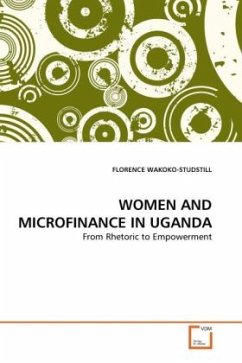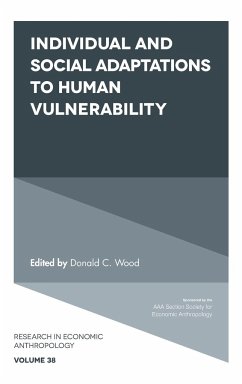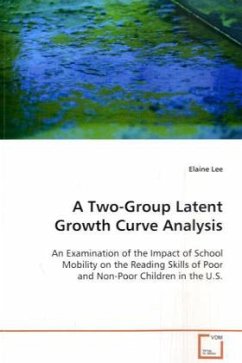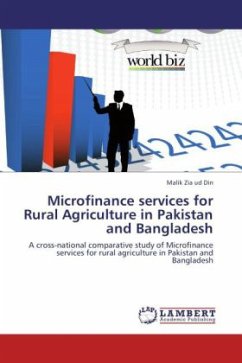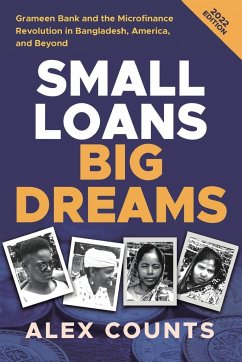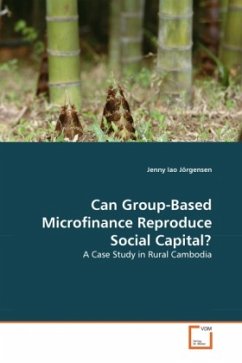
Can Group-Based Microfinance Reproduce Social Capital?
A Case Study in Rural Cambodia
Versandkostenfrei!
Versandfertig in 6-10 Tagen
32,99 €
inkl. MwSt.

PAYBACK Punkte
16 °P sammeln!
Group-based microfinance currently dominates development policy and practice. Despite evidence of its social and economic impact, few researches take an in-depth, empirical look at how the group-based models manifest and create social capital. This research project seeks to contribute to a better understanding of the social capital building aspect of group-based microfinance by analyzing empirical data from a village saving project in rural Cambodia. The study asserts that group-based microfinance scheme can indeed bring positive changes to social and gender relations beyond individual loans a...
Group-based microfinance currently dominates development policy and practice. Despite evidence of its social and economic impact, few researches take an in-depth, empirical look at how the group-based models manifest and create social capital. This research project seeks to contribute to a better understanding of the social capital building aspect of group-based microfinance by analyzing empirical data from a village saving project in rural Cambodia. The study asserts that group-based microfinance scheme can indeed bring positive changes to social and gender relations beyond individual loans and savings. These changes are largely influenced by the type of social capital (norms, networks and trust) promoted by microfinance project's social intermediation processes. The study reveals that group homogeneity and elite avoidance may not matter at all. The social capital build up, especially where structural and institutional exclusion is addressed to harness all bonding, bridging and linking social capital, has the potential of enabling the poor and marginalized to participate and organize themselves in the community development and society transformation processes.



